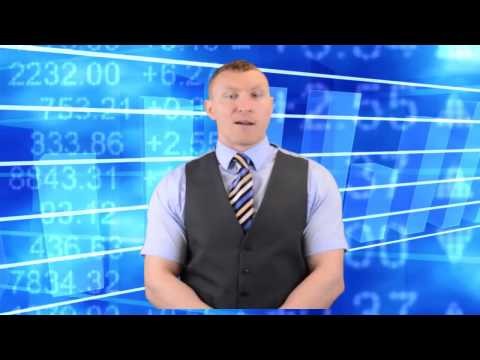Taxes For Day Traders Are You A Trader Or Investor_1
Post on: 14 Апрель, 2015 No Comment

Taxes For Day Traders: Are You A Trader Or Investor?
March 14th, 2014 Comments Off Leadformix Admin
I say this a lot, but semantics are vital to the tax law . Obamacare is constitutional because the individual insurance mandate is both a “tax” and a “penalty. ” The difference between “fraud” and “negligence” will impact the length of the statute of limitations. And, though hundreds of people have argued with me, the “expiration of a tax cut” is different than a “tax increase .”
To illustrate further, imagine that after years of watching that cocksure baby from the E-Trade commercials make it look so easy, you decide to quit your job down at the ol’ cracker factory and make a go of it in the stock market. You trade for your own account, hoping to capitalize on the swing in market prices in order to make ends meet. Are you a “trader” or an “investor?”
While the two terms may seem interchangeable, the tax law treats them differently, and the distinction is significant. A trader’s expenses are deductible on Schedule C in determining adjusted gross income. To the contrary, an investor’s expenses are only deductible as other miscellaneous itemized deductions under Section 212 — subject to a 2% of adjusted gross income floor – and any deduction of investment interest is limited by Section 163 ( d).
In general terms, “traders” are engaged in the trade or business of selling securities for their own account, and their profits are derived through the very acts of trading — direct management of purchasing and selling.”
While “investors” also purchase and sell securities for their own account, they are not considered to be in the trade or business of selling securities. Investors derive profit from the interest, dividends, and capital appreciation of securities .
As you can see, the difference between trader and investor – and thus whether you are entitled to Page 1 deductions rather than Schedule A deductions against income – hinges on whether you are in the “trade or business” of selling securities.
Unfortunately, nowhere in its 70,000 pages does the Code or regulations define a “trade or business.” Thus, it has been left to the courts to test whether a taxpayer’s activity of buying and selling stock rises to the level of a trade or business.
Over the years, this test has evolved into the following: A taxpayer’s activities constitute a trade or business where both of the following requirements are met: (1) the taxpayer’s trading is substantial, and (2) the taxpayer seeks to catch the swings in the daily market movements and to profit from these short-term changes rather than to profit from the long-term holding of investments.
Yesterday, the Tax Court put these tests to the, uh … test in Endicott v. Commissioner, TC Memo 2013-199. In Endicott, the taxpayer’s primary strategy was to purchase shares of stock and then sell call options on the underlying stock. The taxpayer’s goal was to earn a profit from the premiums received from selling call options against a corresponding quantity of underlying stock that he held.
The taxpayer typically sold call options with a term between one and five months. His goal was for the options to expire; thus, the entire amount of the premium received would be a profit. He did not trade options on a daily basis due to the high commission costs associated with selling and purchasing call options.
The taxpayer deducted the expenses related to his activity on Schedule C, reducing his adjusted gross income. The IRS denied the deductions and moved them to Schedule A, maintaining that Endicott was an investor rather than a trader.
In applying the tests, the Tax Court first set out to determine whether the taxpayer’s trading activity was substantial. In doing so, the Court considered the number of executed trades in a year, the amount of money involved in those trades, and the number of days that trades were executed.
Number of Trades
The taxpayer executed 204 trades during 2006, 303 trades during 2007, and 1,543 trades during 2008. Based on precedent, the Tax Court concluded that the number of trades he executed was not substantial in 2006 and 2007 but was substantial in 2008.
Amount of Money
The taxpayer made purchases and sales of approximately $7 million during 2006, $15 million during 2007, and $16 million during 2008. While the court conceded that these amounts were considerable, it noted that, “managing a large amount of money is not conclusive as to whether petitioner’s trading activity amounted to a trade or business.”
Number of Days Trades Executed
Next, the court looked to whether the taxpayer was engaged in market transactions “almost daily” for a substantial and continuous period, generally exceeding a single taxable year. Because the taxpayer traded on only 75 days in 2006, 99 days in 2007, and 112 days in 2008, however, the court concluded that the number of days the taxpayer executed trades was not frequent, continuous. or regular enough to constitute a trade or business.
Despite the fact the first test – requiring the trading to be “substantial” – was not met, the Court went on to rub salt in the wound by also noting that the taxpayer failed the second test – the requirement that a trader attempt to capitalize on the short-term swings in value of his holdings – as well.
In reaching its conclusion, the Court reviewed the length of the holding periods of the securities. During the years at issue the taxpayer held his stocks on average for 35 days, with some stocks being held for over four years. According to the court, “Petitioner’s average holding period of 35 days demonstrates that he was not attempting to catch and profit from the swings in the daily ma














